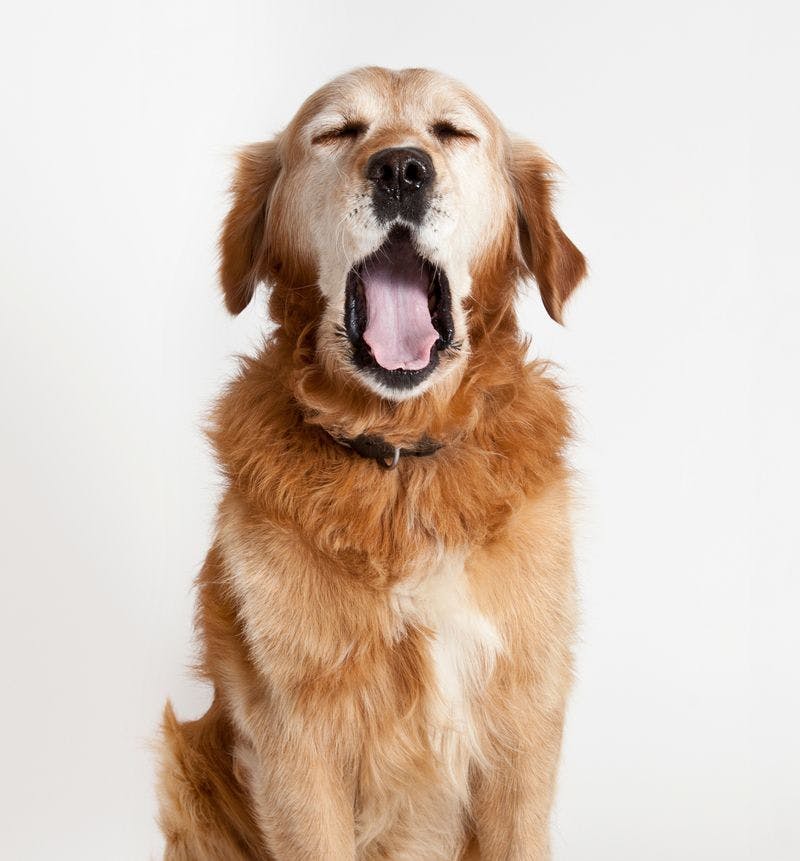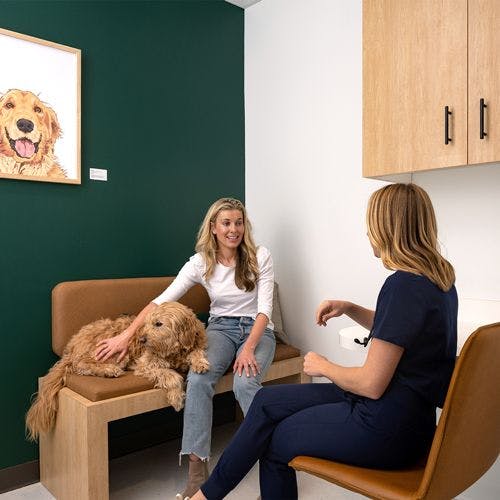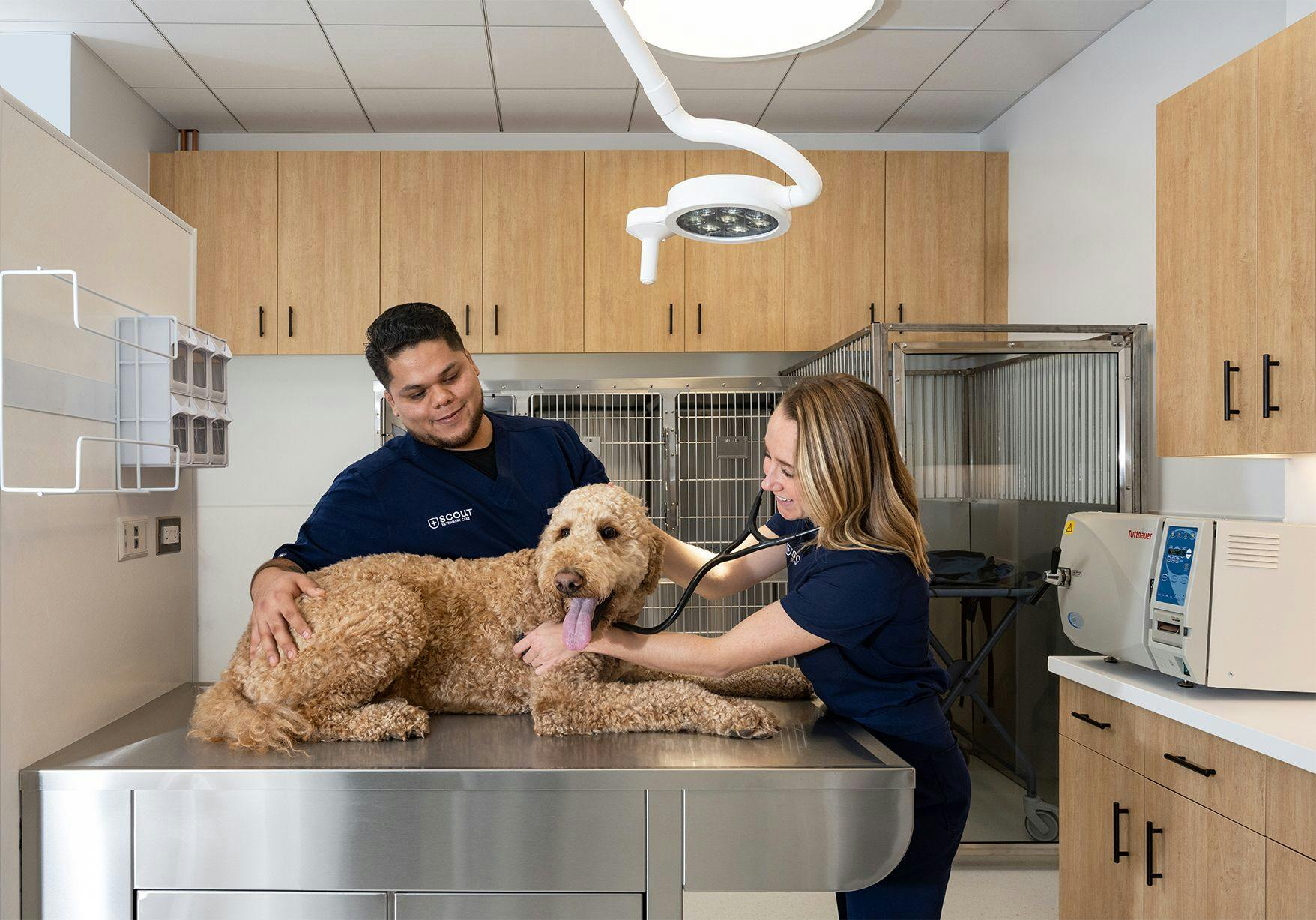

Hi there! We are sorry you are here but happy to help. There is nothing quite so bad as a vomiting pup. And why is it always on the carpet? Most episodes of vomiting are short lived. However, vomiting can be a sign of something more serious and if the episode is prolonged, can lead to serious dehydration. Here is how to tell if it is serious and what can be done.
What’s going on with your dog? Here are some signs that you should be paying close attention or seeking advice...
Is there blood?
This is always a bad sign. Bright red blood is typically undigested and may actually be coming from the mouth or nose. Digested blood will be much darker in color and is often described as having the appearance of coffee grounds.
How often is this happening?
The more times your pet vomits, the larger the risk of dehydration and more likely it’s something more serious than a simple upset tummy.
Are they feeling sick otherwise?
If they are lethargic, seem uncomfortable, or are not acting normally, it is more likely that they will need treatment.
Have they also stopped eating and drinking?
If so, they can quickly become dehydrated and need supplemental fluids and/or electrolytes.
Are they also having diarrhea?
This is another risk of serious dehydration and also makes it much harder to treat your pet at home.
Is it vomiting or regurgitation?
While regurgitation can be problematic it is less likely to indicate a need for urgent treatment.
Vomiting is characterized by an active process. There is usually a sound associated with bringing something up, there is an abdominal contraction and there may or may not be undigested food.
Regurgitation is a passive process. There is often no warning that it is going to happen. There is often undigested food present.


Here’s what you can do at home...
If the vomiting is not too severe, there are several things you can do at home to avoid a visit to the veterinarian and make your pet more comfortable.
- Hold off feeding one meal. We know it’s hard not to feed your sad baby when they are feeling crumby. But sometimes the gut needs to rest.
- When you start feeding again, choose a really bland diet. We like boiled chicken and rice. If your pet has food allergies, choose a different low-fat meat and/or bland carbohydrate source. You can also find pre-made bland diets at the pet store. If this trick works, that's great! Just make sure that you slowly add back in your pet’s normal diet over the next 3 days so they don’t go right back to where they started!
- Avoid using over the counter nausea aids for humans. Many of these are unsafe for pets or require specific dosing.
- Don’t supplement electrolytes with sugary drinks. This can throw off their system further.

Does your pet need Urgent Care?
If it’s just one minor episode, probably not today. But if it is multiple times or there are any of the serious symptoms mentioned above Yes! Remember also to trust your gut too. If you think it’s serious it probably is. Scout is here to help!
What can you expect from your visit?
Dogs vomit for a multitude of reasons. Come prepared to answer some questions! The Scout team will want to know their vaccine and deworming history, normal diet and any unusual foods eaten recently, if they go to parks or daycare, if they get into the garbage or scrounge up anything on walks and more! History taking can give your Scout veterinarian the right background information to narrow down tests and get you help more efficiently.
Many people ask if we need the vomit. Nope! If you think you will have a hard time describing it, you can always take a picture but there is no testing to be done on the vomit itself.
Your Scout veterinarian may recommend:
Bloodwork: Some of the causes of vomiting are actually outside of the gut.Bloodwork helps to determinethe mostlikely cause for vomiting. Electrolytes can also get really out of whack with vomiting.
X-rays: Is your pet a sock eater? Is there a squeaker missing from a toy? How about eh hem underwear? Any non-food item can cause an obstruction. If your Scout veterinarian is concerned this might be the case, x-ray will be recommended. It’s also important to know that MOST of the pets that have an obstruction have not been seen eating the non-food item!
Treatments: Your Scout veterinarian wants your pet to feel better just as much as you do! They may recommend fluids under the skin to help with dehydration, medications to directly treat the cause or symptoms and/or a specific diet to help your pet get back on track.
Follow up appointments: Most visits to Scout for vomitingwon’t require a follow up appointment. However, if the diarrhea does not resolve or there were any other issues uncovered during the visit, they may recommend a checkup to ensure your pet is back on track. If you have a primary care veterinarian that you normally see, you can choose to see them or come back to see Scout.
Referral: If it looks like surgery is indicated or your pet is sick enough to need inpatient care, we will happily coordinate a transfer to one of the inpatient-care facilities in Chicago.
Remember that you are the best advocate for your pet. If you think it’s a problem, it probably is! We are here for you in your time of need.
Next available appointment in Chicago:
Lincoln Park
2369 N. Lincoln Ave. Chicago, IL 60614
773-676-8166
OPEN 7 DAYS A WEEK 10A-8P
West Loop
112 N. May St. Chicago, IL 60607
773-676-2988
OPEN 7 DAYS A WEEK 10A-8P
See Scout today.
Book an appointment online up to 36 hours in advance.






